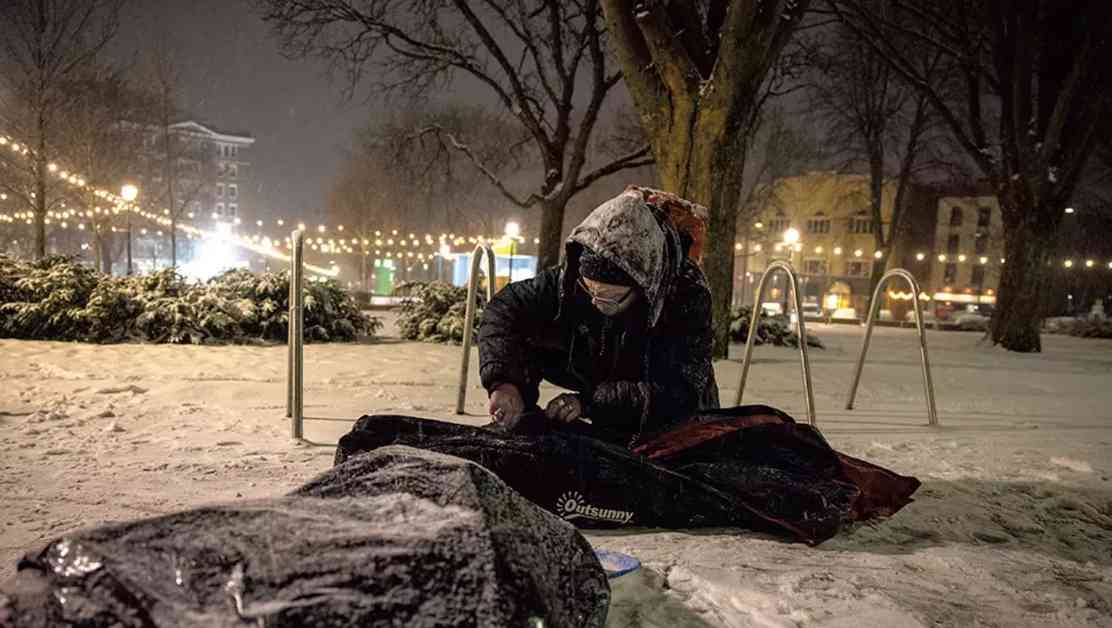Two Social Workers Brave the Cold to Save Lives
Social workers, Sarah Russell and Taylor Thibault, embarked on a mission to save the lives of the homeless in downtown Burlington. The bitter cold of January 21, 2025, had driven most residents indoors, leaving the streets deserted. Armed with a compact bus, the duo sought out those who slept on the frigid sidewalks, offering transport to a nearby emergency shelter. The escalating homelessness crisis in Vermont, with an estimated 3,500 unhoused individuals, had prompted the city to open shelters, but the demand had surpassed capacity. Russell and Thibault’s efforts were a lifeline for those facing the deadly cold.
Tackling the Perils of Homelessness
Russell, the city’s “special assistant to end homelessness,” was on her second consecutive night of scouring the streets for the unsheltered. The threat of hypothermia loomed large over the homeless population, highlighting the urgent need for shelters and support services. Despite Vermont’s proactive measures, the state did not track homeless deaths. A joint investigation by Seven Days and Vermont Public sought to shed light on the fatalities among the homeless population. The findings revealed that accidental drug overdose was the leading cause of death, underscoring the complex interplay between homelessness and addiction.
The tragic story of Michael Mallen, found dead in a baseball equipment shed, underscored the challenges faced by the homeless. Mallen’s struggle to secure shelter and the failures of the system to support him highlighted the gaps in services for vulnerable individuals. The investigation uncovered 82 deaths of homeless Vermonters over four years, each a poignant reminder of the harsh realities of life on the streets.
A Personal Journey through the Cold
The plight of Sean Kelleher, a homeless man crushed to death at a recycling facility, added a human touch to the statistics. His partner, Jessica Barrows, shared a poignant narrative of love and loss, painting a vivid picture of the struggles faced by those on the streets. Barrows’ own journey from homelessness to stability highlighted the transformative power of support and perseverance. Despite the tragic end, Barrows found the strength to rebuild her life, a testament to resilience in the face of adversity.
As Russell and Thibault navigated the icy streets, their encounters with the homeless community revealed the harsh realities of survival. The “magic school bus,” a beacon of hope in the darkness, provided a temporary refuge for those seeking shelter from the cold. The challenges faced by service providers and the increasing demand for support underscored the need for long-term solutions to homelessness. Russell’s unwavering dedication to checking on the most vulnerable, even in the dead of night, showcased the compassion and commitment of those on the front lines.
In the end, the story of homelessness in Vermont is not just a statistical analysis but a human tragedy unfolding on the icy streets of Burlington. The struggle for survival, the battle against addiction, and the quest for dignity in the face of adversity paint a poignant portrait of life on the margins. As Russell and Thibault made their final rounds, offering a ray of hope in the bitter cold, their actions spoke louder than words, a testament to the enduring spirit of compassion and resilience in the face of overwhelming odds.










